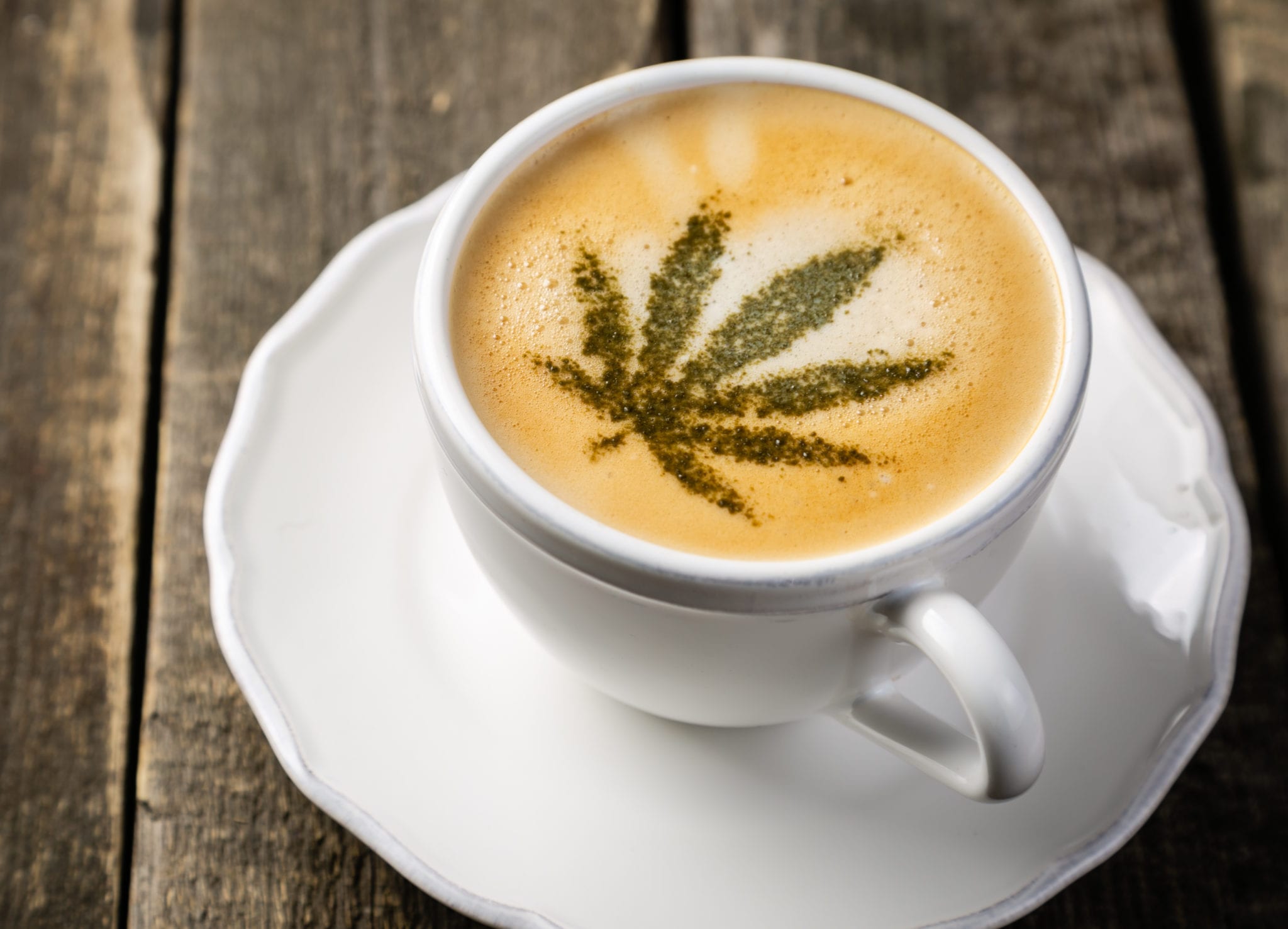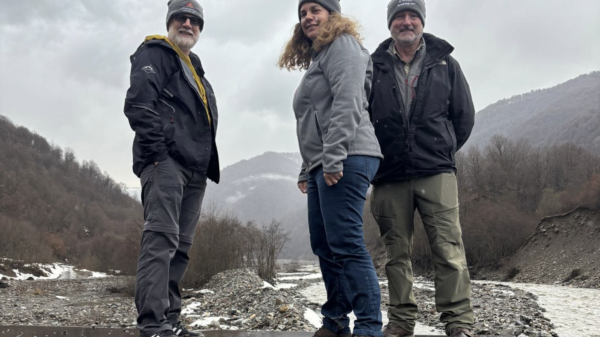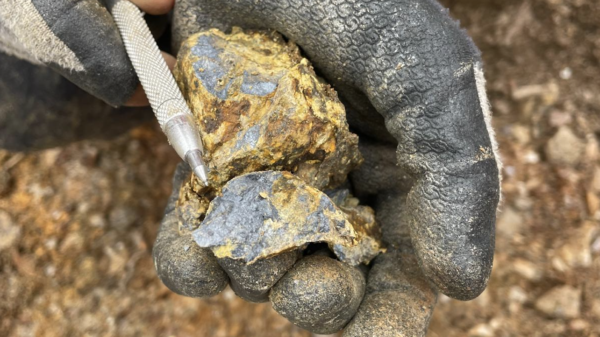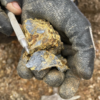Would you like gummies with that?
Edmonton tourists and residents could be asking that at one of Canada’s first legal cannabis cafes this year, if one city councillor gets his way.
Coun. Mike Nickel of Ward 11 said his motion to set up cannabis cafe regulations is gaining steam after holding several meetings with Alberta industry players and regulators over the last two months.

Cannabis consumption cafes are coming to the city of Edmonton this year, says city councillor Mike Nickel. Submitted photo
“From a city perspective I’m pretty sure in the next six to eight months we’ll have a business licence regime ready to go,” he said. “That will be ambitious but I’m pretty confident of that.”
For Nickel, a seasoned businessman turned politician, legalizing consumption cafes is a way to grow the cannabis edibles market and provide jobs in an ailing Albertan economy.
“This wouldn’t be vaping or smoking — we don’t support that at all,” he said. “But this is a huge economic opportunity for the City of Edmonton and that’s why I’ve gone after this cannabis bylaw.”
Under the Cannabis Act, the federal government is in charge of regulating the production and marketing of cannabis products, including next generation items such as vapes, gummies and infused beverages. But it’s up to provinces and territories to regulate the sale and consumption of those products in their jurisdictions.
The councillor said he met with the president and chairman of Alberta Gaming, Liquor and Cannabis this month and “they’re ready to move” on approving rules for the cafes.
“They literally said, ‘just bring us the models for us to review before anything is official. Let’s get the bugs out before we get the politicians involved,'” Nickel said.
Update: The AGLC told Mugglehead that it met with Nickel and the provincial regulator reinforced to him that cannabis cafes are currently not allowed, but it would review any viable business models put forward.
The AGLC said licensing of a cannabis cafe or lounge would require changes to the current Gaming, Liquor and Cannabis Act or Gaming, Liquor and Cannabis Regulations.
“While municipalities may have discussions in consideration of ideas for future cannabis businesses, existing legislation remains in effect,” the AGLC said.
Read more: Policymakers should look south to improve Canada’s cannabis retail market, expert says
Read more: Cannabis-infused dining flourishes despite being illegal

Edmonton-based Fire & Flower is one of Canada’s largest cannabis retailers. The company is helping Coun. Mike Nickel push for legal cannabis cafes in the Alberta capital. Submitted photo
Consumption cafe business blueprints
When Nickel met with some of Alberta’s industry players in January, a group that included Aurora Cannabis (TSX: ACB) and Fire & Flower (TSX: FAF). He said they looked at several cafe business concepts.
Nickel said selling cannabis-infused edibles alone wouldn’t likely generate enough revenue, so they brainstormed how they could add value to the model.
“Why couldn’t there be a licensed restaurant (that serves alcohol) on one side and serve cannabis on another side, and one kitchen in the back for mutual food service?”
He said AGLC was “absolutely” open to the idea of the hybrid approach, but his team would have to get creative to bypass Health Canada’s strict ban on promoting cannabis alongside alcohol.
But Nickel says he’s not a typical politician and his pragmatic business approach to forming policy will ensure some sort of consumption cafes will be open this year.
“This isn’t rocket science,” he said. “This is where you have to pick up the champions. I’m envisioning baby steps as a hybrid model and then things will gain some momentum.”
Nickel said he is also working to make sure cafe owners would have access to insurance and banking, which could be another major inhibitor to the business model.
Education and safety, especially among service staff, will be key in making it all work, he added.
“There’s a big education factor as we open up this market segment that will have to go into this safety consumption model,” Nickel said.
The term ‘cafe’ will also replace the term ‘lounge’ because it is more inviting to all demographics, he added.
“The fastest growing segment in the cannabis sector are seniors, so a cannabis cafe sounds better to somebody who’s 70 than a lounge,” he said.
His report on cannabis cafe regulations will be tabled at Edmonton city council on Feb. 26.

Very weedy tea and biscuits via Deposit Photos
Nickel’s ‘heavy lifting’ could carve a path for other Canadian cities, provinces
Nickel said if his regulations are passed it will pave the way for other cities and provinces to follow.
“When you are first at something in government, generally you do all the heavy lifting,” he said. “But I envision when we do get it going, other [jurisdictions] will start copying.”
Ontario announced today it’s launching consultations on expanding cannabis business opportunities, including consumption venues and special permits for outdoor festivals and concerts.
Nickel said relaxing regulations is key to battling a still-thriving illicit market, and industry players have emphasized to him that millions of dollars are being left on the table.
According to Statistics Canada, the legal industry is currently capturing around 38 per cent of the country’s entire $6 billion annual cannabis market.
Despite having a “fantastic” conversation with AGLC, Nickel said Ottawa still presents the largest hurdle for cannabis cafes to be realized.
“We’re really struggling – the city and the province – with the federal government’s draconian application of the rules for cannabis, particularly when it comes to advertising,” he said.
Health Canada told Mugglehead the federal government “takes cannabis marketing and advertising, including marketing and advertising that may reach youth, very seriously.”
The agency said a task force report helped shape the heavy restrictions on advertising before the Cannabis Act passed in October 2018. The report was based on consultations held with independent experts, public health officials, teachers and parents who were concerned that Canada has one of the highest rates of cannabis use in the world among youth.
The Cannabis Act is scheduled for review in Parliament in October 2021.

People visit a cannabis coffee shop in Amsterdam, Netherlands. The city was the original jurisdiction to legally sell cannabis for personal consumption in public settings. Photo via Deposit Photos
Cannabis cafes could improve public safety
For Nickel, cannabis companies should be allowed to advertise their clean, legal supply if Ottawa wants to root out the illicit market and keep Canadians safe.
But legalizing cannabis cafes would also increase safety, he said.
“There’s the other side of it, I need these folks off the street and in a safe environment with safe product,” Nickel said.
Chris Lindsey, director of government relations with U.S.-based Marijuana Policy Project, said cannabis cafes first started popping up in states that have legalized cannabis because of tourists had no where to go.
Last month, Alaska became the first state to approve consumption sites at the state level, and Lindsey says Colorado and Illinois are watching closely.
“Alaska didn’t want to have a situation where tourists would come in and make [cannabis] purchases and they couldn’t consume it anywhere,” Lindsey said. “They couldn’t be outside, or their hotel or cruise ship. Where do they go?”
But he said in other jurisdictions like in the City of Springfield, Illinois, legal consumption sites have become more of a human rights issue.
Because strata boards and public housing there do not allow cannabis consumption on property, it puts consumers — and especially medical cannabis patients — in a precarious position.
“What sort of started with, ‘what do we do with the tourists?’ has now become ‘how do we accommodate consumers who couldn’t really even consume in their own homes,'” he said.
As legalization evolves both in Canada and the U.S., cannabis cafes eventually will become the norm, Lindsey said.
“This entire movement has really developed based on the idea that one jurisdiction implements a set of rules,” he said. “Then the other jurisdictions start to watch and learn, and then adapt them to their own set of circumstances — and that cycle just keeps repeating.”
Read more: America’s first cannabis cafe opens in Hollywood
Top image via Deposit Photos
jared@mugglehead.com
@JaredGnam














